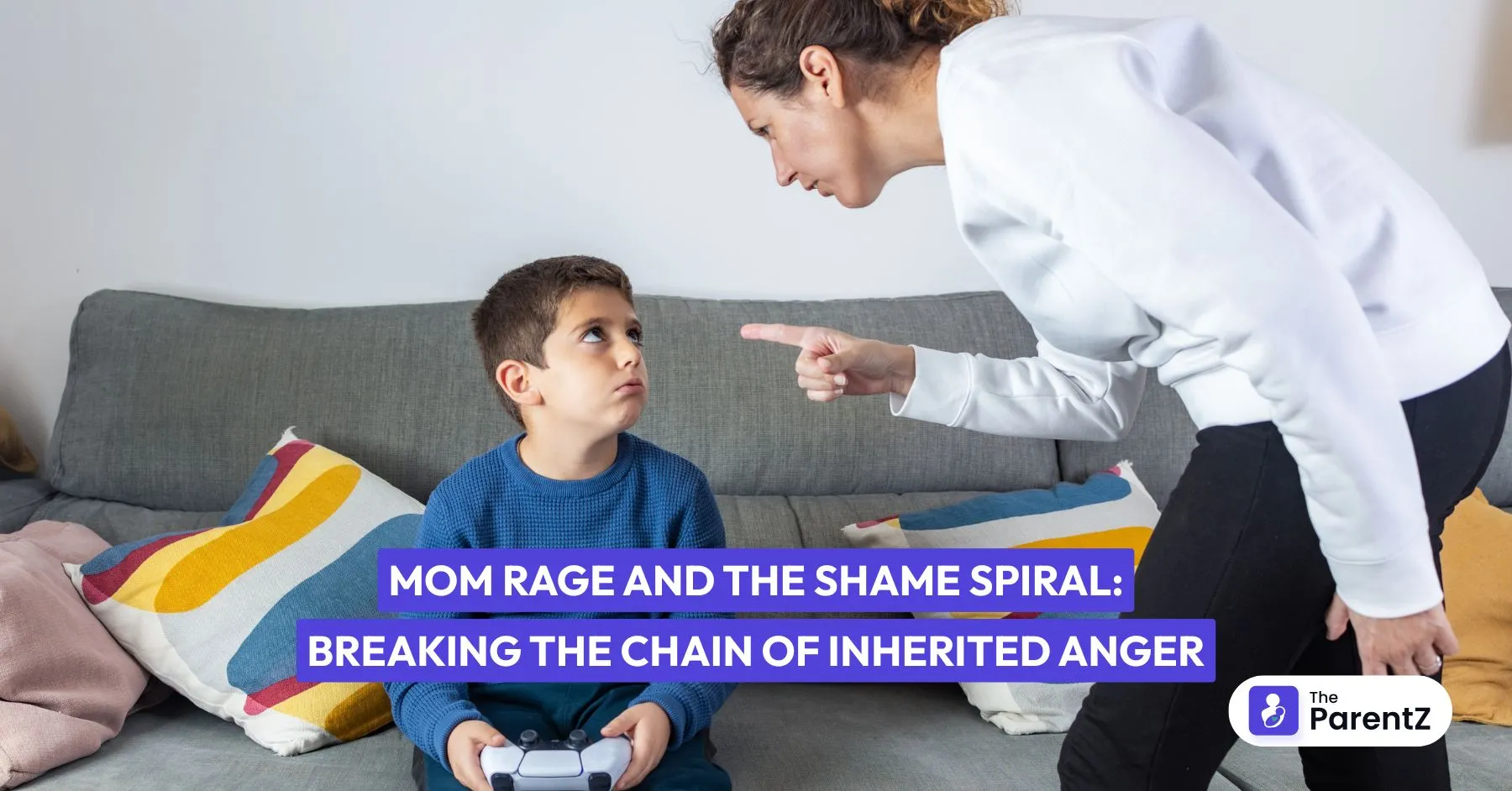Every child has witnessed it. That moment when mom's voice rises to a pitch that seems to shake the very walls. The kind of anger that erupts over something small – spilled milk, forgotten homework, toys left on the floor. But the rage feels enormous, disproportionate, almost volcanic. And in that moment, everyone in the room holds their breath, including mom herself.
This is 'mom rage'. And it's real, it's raw, and it's far more common than anyone wants to admit.
The Weight of Unexpressed Pain
Behind that explosion lies something much deeper than frustration over daily mishaps. It's the accumulation of years of swallowing disappointment, of putting everyone else's needs first, of losing pieces of yourself along the way. It's the pain of dreams deferred, voices silenced, and identities that got buried under the weight of motherhood's demands.
Society has long painted women as "too emotional" or "hysterical." So when that rage bubbles up, when mothers lose control in ways that feel scary and unfamiliar, the shame that follows is crushing. The guilt settles in like a heavy blanket: "What kind of mother am I? How could I yell like that? They'll remember this forever."
And so begins the shame spiral – that endless loop of self-criticism that can last hours, days, or even years after the moment has passed.
The Daughter Connection
Daughters often bear the brunt of this inherited rage in particularly painful ways. A young daughter, full of possibility and unaware of the compromises that lie ahead, can unknowingly trigger something primal in her mother. She represents everything the mother once was – or thought she could be – before life taught her to shrink, to accommodate, to give up pieces of herself for others.
When a daughter confidently rejects the same limitations her mother had to accept, when she stands up for herself in ways her mother never could, it can feel like salt in an old wound. The rage that emerges isn't really about the daughter at all – it's about a lifetime of swallowed words and surrendered dreams.
But here's the painful truth: no child can save their mother from this rage. No amount of good behavior, no sacrifice, and no attempt to be perfect will ever heal those deep wounds or compensate for what was lost along the way. Yet many daughters spend their childhood trying, making themselves smaller in a desperate attempt to keep mom's anger at bay.
The Generational Chain
This rage isn't born in a vacuum. It's inherited, passed down like a family heirloom nobody wants, but everyone seems to carry. Your mother's rage might have been her mother's rage and hers before that. An endless chain of women who were told to smile, to be pleasant, to make everyone else comfortable while their own needs went unmet.
Think about it – how many generations of women swallowed their voices? How many mothers stood at kitchen sinks, washing dishes while dreams dissolved in soapy water? How many grandmothers bit their tongues when they wanted to scream about the unfairness of it all?
That accumulated anger has to go somewhere. And too often, it finds its way to our children – the safest targets in an unsafe world, the ones who won't leave us even when we're at our worst.
Understanding Without Excusing
Understanding this cycle doesn't excuse the behavior. Children shouldn't have to absorb their mother's unprocessed pain. However, recognizing the source can be the first step toward breaking the pattern.
'Mom rage' often has nothing to do with the present moment and everything to do with accumulated grief – grief for the life unlived, the voice unheard, the dreams abandoned. It's rage at a system that demanded so much while giving so little in return.
Finding a Way Forward
So what can mothers do with this knowledge? How do we break a chain that seems so deeply embedded in our DNA?
First, acknowledge the rage without shame. It exists. It's real. It doesn't make you a bad mother – it makes you human. The shame spiral only feeds the beast, creating more pressure that will eventually need an outlet.
Find safe spaces to express these feelings. Whether it's therapy, trusted friends, journaling, or even screaming into a pillow, find ways to release this pressure that don't involve your children. The rage needs somewhere to go, and it's better expressed consciously than erupted unconsciously.
Practice radical self-compassion. You're carrying not just your own disappointments but generations of unexpressed female anger. That's a heavy load for anyone to bear.
Talk to your children when you mess up. Age-appropriate honesty can be healing: "Mommy got very angry, and that wasn't about you. Sometimes grown-ups have big feelings that come out the wrong way, and that's something Mommy is working on."
Conclusion
The most powerful thing you can do is decide that this generational rage stops with you. Your daughter doesn't need to carry your unexpressed anger. Your son doesn't need to fear the volcanic eruptions that seem to come from nowhere.
This doesn't mean becoming perfect – it means becoming conscious. It means recognizing when the rage is bigger than the moment and finding healthier ways to process it.
Every mother who chooses to face this rage head-on, who refuses to pass it down unconsciously, is doing sacred work. She's breaking a chain that may have bound her family for generations.
Your rage is real. Your pain is valid. And your choice to heal it rather than pass it on? That's perhaps the greatest gift you can give your children – and yourself.





Be the first one to comment on this story.